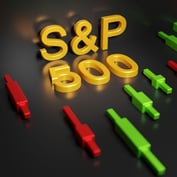What You Need to Know
- Soft economic signs may prompt the Federal Reserve to lower rates, he wrote.
- The economist heard flexibility in policy comments by Jeremy Powell, the Fed chair.
Economist Jeremy Siegel is bullish on stocks through year-end and for 2024, he wrote in a column posted Monday, in which he noted that productivity growth is “alive and well.”
The latest quarter’s productivity rate “was among the highest in the last two decades,” excluding the pandemic, he wrote on WisdomTree’s website. Siegel, a Wharton School finance professor emeritus and WisdomTree senior economist, explained that he thinks more productivity rebound can occur.
“Workers might be working harder so they cannot be laid off; the era of ‘do nothing, the boss can’t fire me’ is over. I think a continued growth of productivity, that also comes from recent artificial intelligence applications, can offset the softening of demand and help us avoid a recession and support the profit outlook,” he added.
“I do not see us going into a deep recession that would cause earnings to fall meaningfully. Actually, the earnings for this quarter have come in quite well, beating expectations. There may be some slow down, but many parts of the markets are priced for a slowdown or even a mild recession,” Siegel wrote.
Equity markets rose last week after a “powerful 1-2 punch” for lower interest rates, Siegel noted.
The first knock came when Jerome Powell, chairman of the Federal Reserve, expressed flexibility in the outlook for monetary policy and interest rates, an encouraging sign, according to Siegel. Second, jobs data came in “quite weak,” with the October report missing expectations, and negative revisions to prior months exceeding 100,000, he noted.









 November 06, 2023 at 02:45 PM
November 06, 2023 at 02:45 PM








